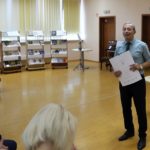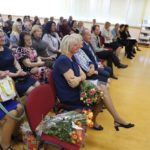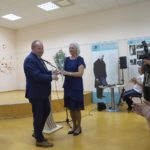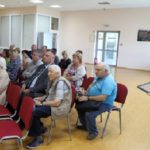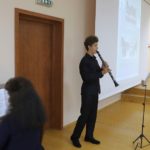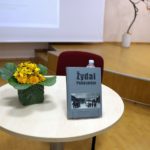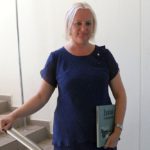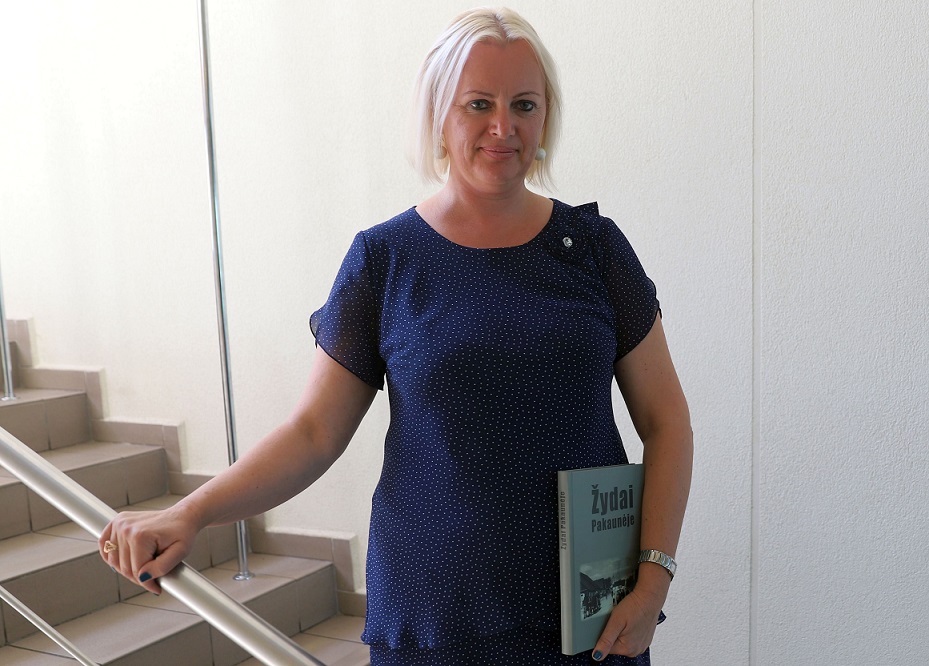
The Kaunas Regional Public Library Monday presented a new book written by multiple authors called “Žydai Pakaunėje” [Jews in the Area around Kaunas]. The collected writings were compiled by Dr. Inga Stepukonienė, a teacher at the Garliavos Jonučiai Gymnasium and associate professor at the Kaunas branch of Vilnius University.
Book authors, historians and members of the Jewish community attended the book launch.
Historical documents show Jews settled in the Grand Duchy of Lithuania in the 14th century and numbered over a quarter million people by the 18th century.
Litvaks were considered hard-working, talented and creative. Many fought in Lithuania’s volunteer army and participated actively in national life. Interwar Lithuanian and Jewish politicians, scholars and writers forged a common vision for the new nation.
The book features many recollections. Most of the authors tackling the subject of Jewish life in the villages around Kaunas are local residents. Regional historian Antanas Vaičius is from Čekiškė, Algirdas Marazas of Kulautuva writes about Jewish life there and Garliava residents Inga Stepukonienė, Robertas Keturakis and Ovidijus Jurkša pay tribute to the history of the Jews of Garliava.
Some Litvaks from the area around Kaunas even achieved world renown: Leiba and Estera Tile moved to America and became the adoptive parents of Louis Armstrong, aka the jazzman Satchmo.
The story of every larger Lithuanian town includes the mass murders of the Holocaust. The region around Kaunas is no exception to this: there are at least seven mass graves. All of the old Jewish cemeteries and mass murder sites are listed on the Lithuanian cultural heritage registry.
Kaunas regional administrator Valerijus Makūnas said at the event: “Today we must not just learn more about the past of our state and the culture of the peoples living with Lithuanians, but also to build a bridge across the horrifying abyss of the Holocaust.” He said the first thing to do is to take into account the contributions Litvaks made to the creation of the Lithuanian state, to honor their memory appropriately and to protect the cultural heritage. “We have to look at history through the eyes of people in the 21st century. There should be great understand, wisdom, contrition and tolerance in that view. This is the only way we can build bridges from the past to the future,” he added.
The Kaunas Regional Public Library is currently hosting an exhibition featuring books about Jews around the world but focusing on Litvaks.


